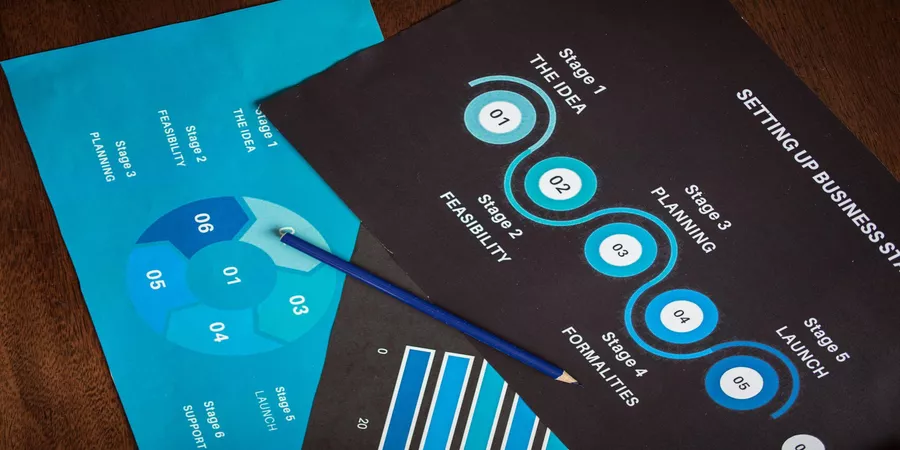Modern entrepreneurship isn’t just about having a great product or service. It’s about visibility — the ability to be found, recognized, and trusted by the right audience. In a world where most business journeys begin with a Google search, Search Engine Optimization (SEO) has become more than just a marketing tactic; it’s a fundamental growth engine.
For today’s entrepreneurs, SEO is the silent driver behind customer acquisition, brand credibility, and long-term sustainability. Those who understand its power are redefining how businesses grow in the digital age.
The Evolution of SEO in Business Strategy
Not too long ago, SEO was treated as a technical add-on — something you did after building your website. It was often delegated to specialists who focused on keywords and backlinks, while business owners focused on sales and product development. That mindset has changed dramatically.
Today, SEO sits at the heart of a company’s growth strategy. Entrepreneurs use it to gather market insights, understand customer behavior, and optimize digital touchpoints. In many ways, SEO has become the pulse of digital intelligence — helping founders make smarter, data-driven decisions.
Search engines no longer reward websites that simply “stuff” keywords. They value authenticity, expertise, and relevance. This shift has opened the door for entrepreneurs who think strategically, not just technically.
Building a Brand Through Authority and Trust
Modern SEO isn’t just about ranking higher; it’s about earning trust. When users find your business organically, they see it as credible. This perception builds brand authority — an essential ingredient for growth.
Smart entrepreneurs use SEO as a long-term trust-building tool. By creating high-quality, useful content, they position their brands as thought leaders within their industries. A strong content strategy backed by SEO ensures that potential customers discover you through valuable insights, not hard sales pitches.
Authority also extends beyond your website. Being mentioned or cited by credible platforms like Forbes signals legitimacy and boosts both visibility and confidence. When your brand consistently shows up in trusted spaces online, customers start to associate your name with reliability and expertise.
Using SEO Data to Understand Your Audience
Every keyword searched, every click made, and every page visited tells a story. Entrepreneurs who know how to interpret these signals gain a competitive advantage.
SEO tools provide insights into what customers are looking for, what questions they ask, and what problems they want to solve. This information is invaluable for shaping products, marketing strategies, and brand messaging.
For example, if you’re running a small business that offers eco-friendly home goods, SEO data might reveal that people are searching for “sustainable cleaning products” more than “eco cleaning kits.” That single insight can change how you name your products, how you design your web pages, and how you target ads.
SEO is more than visibility — it’s a continuous feedback loop that aligns your business with real customer demand.
The Strategic Power of Content
At the core of every successful SEO strategy lies content — but not just any content. Smart entrepreneurs invest in creating material that informs, educates, and builds relationships.
Think of your website as a digital storefront. Every blog post, guide, and resource is a chance to start a conversation with your ideal customer. The key is relevance and value. Content should answer genuine questions, simplify complex topics, and provide actionable takeaways.
Moreover, the middle of your SEO plan should always consider budget and scalability. Understanding SEO pricing helps you allocate resources efficiently — whether you’re hiring an agency, building an in-house team, or using automation tools. Investing strategically in SEO early on often yields compounding returns, as organic traffic continues to grow without the recurring costs of paid ads.
When executed well, your content strategy becomes more than marketing; it becomes an ecosystem that continuously attracts, educates, and converts new customers.
Visibility as a Competitive Edge
The digital landscape is crowded. No matter how innovative your business model is, it’s difficult to grow if no one can find you. SEO levels that playing field.
Entrepreneurs who master it can compete with larger companies on visibility, even with smaller budgets. Ranking for niche, high-intent keywords can drive targeted traffic that converts at a much higher rate than generic advertising. This precision is what makes SEO such a powerful tool for startups and small businesses.
For instance, a local accounting firm that ranks for “tax advisory services near me” will attract ready-to-buy clients without spending thousands on ads. It’s a cost-efficient and sustainable way to reach your target audience.
The more visible your brand becomes, the more it’s remembered — and the more trust it earns over time.
SEO and the Entrepreneurial Mindset
What truly separates modern entrepreneurs from traditional ones is adaptability. The ability to learn, test, and refine is the foundation of long-term success. SEO embodies that same principle.
The process requires patience, experimentation, and continuous improvement. It rewards consistency and creativity. Entrepreneurs who embrace SEO learn how to pivot based on performance data, adjust their content to user trends, and innovate faster than competitors who rely solely on paid promotion.
In essence, SEO aligns perfectly with the entrepreneurial mindset — both are long-term games built on learning and persistence.
The Bottom Line: Growth Redefined
SEO is no longer a technical afterthought; it’s a strategic necessity. For entrepreneurs who want to grow powerful, sustainable brands, understanding and leveraging SEO is non-negotiable.
By using SEO to build trust, understand audiences, and shape brand strategy, business owners position themselves not just to compete — but to lead. The entrepreneurs redefining growth today are the ones who realize that visibility is not luck; it’s built through intention, strategy, and the smart use of search.
The future of entrepreneurship belongs to those who master the art of being found.







